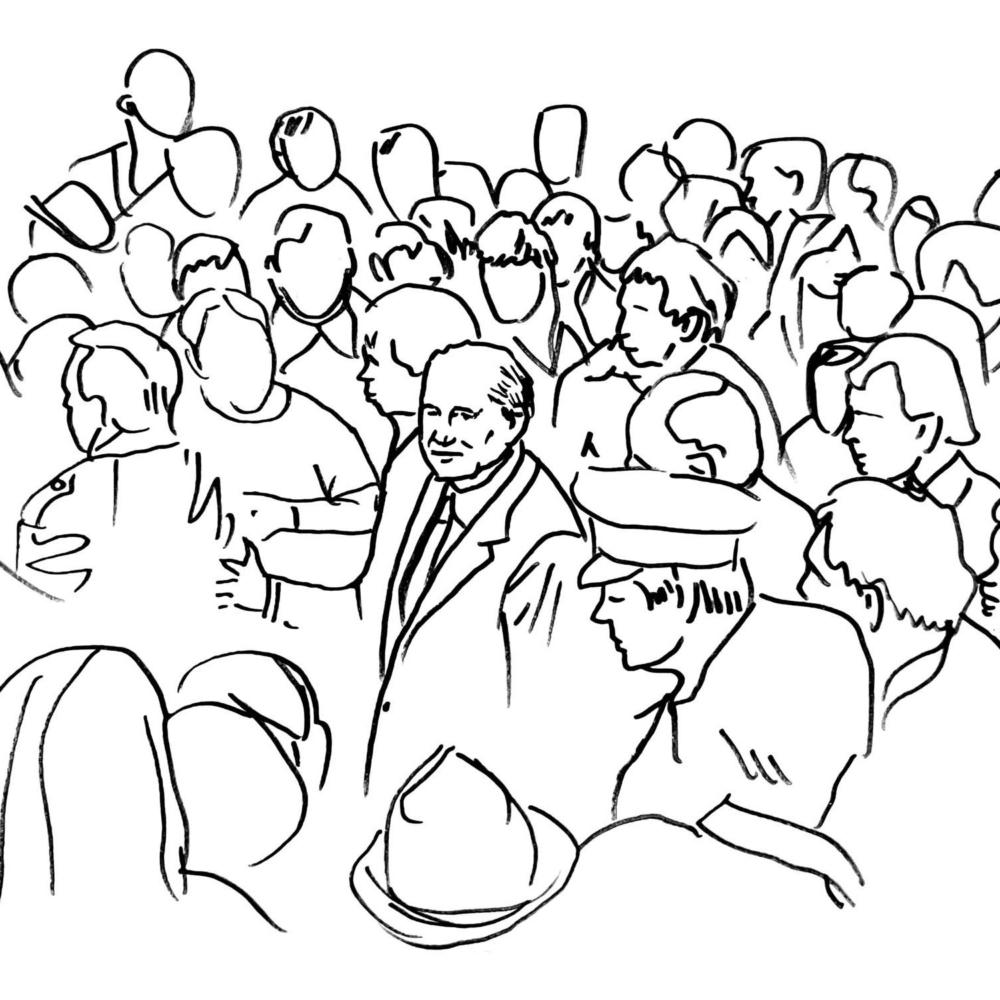Mikhail Gorbachev
On the Death of the Bridge Builder between East and West. A conversation with Gerald Häfner. The questions were asked by Wolfgang Held.
What did you think when you heard about the death of Mikhail Gorbachev?
The profound tragedy of his life! Mikhail Gorbachev is, in my eyes, one of the greatest, perhaps the greatest politicians of the 20th century. He achieved unbelievable things – and reaped in his region of the world above all thanklessness and incomprehension. At the end of his life, he was shamefully lonely, disregarded, and even outright hated by the majority of his compatriots. Associated with this is a second tragedy that I find even greater. It is related to the question of what has become of his grandiose impulse today. Certainly, indirectly, in some cases unintentionally, Gorbachev’s mission had planetary dimensions. But it was first addressed to his country and his fellow human beings. He wanted to free them from the tribulation of an anti-human, totalitarian society. Gorbachev’s goal was to democratize the Soviet Union and Russia, to open them up to intellectual freedom and plurality as well as to a free and, at the same time, social economy, to rebuild the totalitarian, static system into an order that was self-determined, capable of development by the people. And today? Putin rules increasingly lonely and unteachable, authoritarian, aggressive, even totalitarian internally and externally, and wages war. Those who dare to call a spade a spade must exchange their freedom for prison. The course of history is sometimes cruel. Thirty years after Mikhail Gorbachev’s great political thaw, this largest country on earth is ruled by forces that do not stand for what he has tried to strive for.
In 1985 Gorbachev became general secretary of the CPSU and thus head of government, and we learned what ‹Glasnost› and ‹Perestroika› mean. What did it mean to you as a political activist during the Cold War?
The Cold War became more and more dangerous. In the mid-80s, we had 50 times overkill. In other words, the East and West’s arsenal of nuclear, biological, and chemical weapons was so vast that it could have wiped out humanity 50 times. In addition, the warning times became shorter and shorter. I fought in the peace movement at the time. We advocated for unilateral disarmament. We declared: «I am ready to live without the protection of military armament!» We were convinced that we had to be the ones who started, and then the other side would follow. The government at the time declared us naïve and dangerous. After all, everyone was afraid of the Soviet Union or the Russians. They said: if the West disarms, the other side will take advantage of it.
Then the unbelievable happened: the Secretary General of the Soviet Union, which is considered the greatest threat, declared before the French National Assembly, declared in the German Bundestag, and declared in the American Congress that we had to end the arms race. The Soviet Union would, therefore, unilaterally withdraw nuclear missiles, and he suggested that the other side do the same. He changed the world and the course of history. And the man did not speak coldly, calculatingly, in a calculation, but openly, honestly, from the heart. You could feel that he was serious. What no Western or European politician had dared to do, he, Gorbachev, dared to do so. You could feel tremendous joy moving around the globe.
This excerpt comes from an article originally published in the (online exclusive) English Edition of the weekly Newsletter ‹Das Goetheanum›. You can read the full article on the website of 'Das Goetheanum'.


